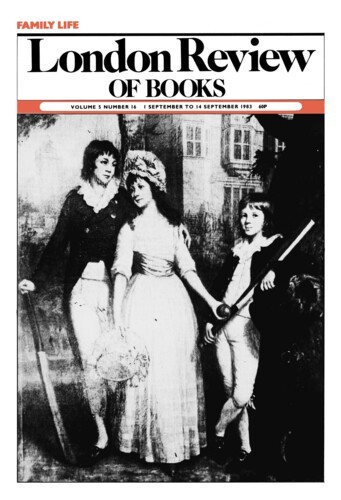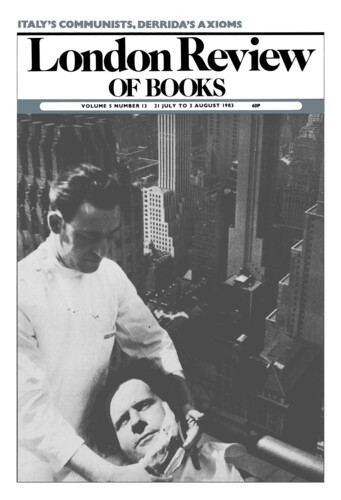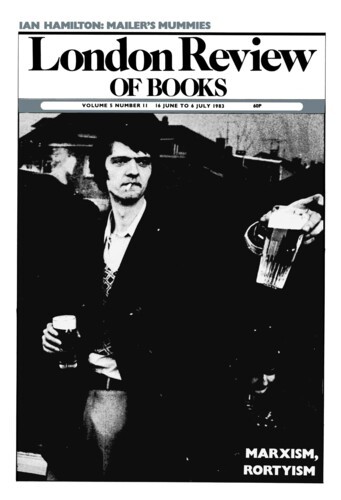A World of Waste
Philip Horne, 1 September 1983
Perhaps because of its concentration on people’s circumstances and constraints, the novel is often concerned with freedoms under threat and forms of liberation. The generality ‘freedom’ is much bandied about in the world at large, of course, mostly with a bland or fierce prejudice in its favour: misapplied, it can lead to terrible blunders. An aspect of the value of the novel is therefore its power to examine the conditions of freedom in particular cases, to refresh our sense of what this tortured word can mean. In proportion as the novel brings us into contact with the pressures of a particular predicament, moreover, we may feel ourselves liberated from the generalising entrapments of ‘freedom’ into a consciousness of urgent special dilemmas from which catchwords can bring no real release. The freedom of the imagination is not necessarily greatest in imagining freedom: or rather, as in Ann Schlee’s novel and George Konrad’s, it is where social and psychological pressures are most intense that we get from art our purest expressions of freedom.




